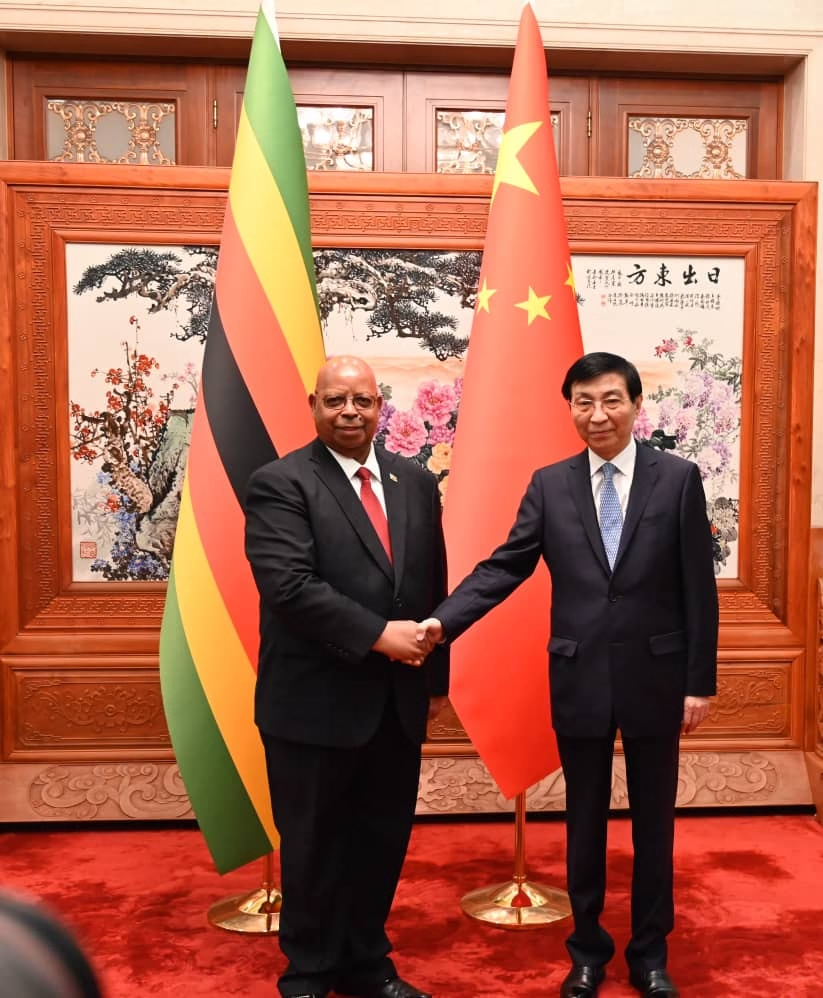
Speaker of the National Assembly Advocate Jacob Francis Mudenda’s high-level diplomatic visit to China has marked a decisive turn in Zimbabwe’s strategic efforts to mobilize global partnerships through parliamentary diplomacy. His engagements, which included a meeting with Chairman Wang Huning of the Chinese People’s Political Consultative Conference (CPPCC), culminated in the establishment of the Zimbabwe-China Parliamentary Friendship Association, an institutional mechanism designed to deepen bilateral cooperation in legislative governance, infrastructure development, and sustainable economic growth. The visit, made at the invitation of Chairman Wang, reflects the growing importance of legislative diplomacy as a complementary pillar to traditional executive engagement in shaping Zimbabwe’s developmental trajectory.
By anchoring the dialogue around mutual respect, sovereignty, and practical cooperation, Speaker Mudenda has reinforced the country’s alignment with emerging global powers who are championing South-South collaboration. The launch of the Parliamentary Friendship Association represents more than ceremonial goodwill, it is a platform to operationalize shared interests between the two nations. It allows both legislatures to harmonize their experiences in governance, policy formulation, and oversight, while laying the groundwork for sustained technical exchange in key developmental areas such as digital transformation, green energy, transport infrastructure, and industrialization.
Speaker Mudenda’s delegation brought to the table a clear development vision anchored in Zimbabwe’s National Development Strategy 1 (NDS1) and the broader Vision 2030 agenda. He articulated the Parliament’s role in aligning legislation with economic reforms, attracting investment, and creating an enabling environment for inclusive growth. The Chinese side responded affirmatively, with Chairman Wang Huning reiterating China’s commitment to supporting Zimbabwe’s modernization drive through multi-sectoral cooperation under the Belt and Road Initiative. This collaborative posture reflects the strategic trust between Harare and Beijing, forged over decades of solidarity, and now evolving into targeted partnerships that respond to the present socio-economic needs of Zimbabweans.
Central to the visit’s success was the articulation of how parliaments, often viewed as limited to domestic affairs, can in fact play a leading role in shaping foreign policy outcomes and attracting global development capital. Speaker Mudenda emphasized the growing need for legislative institutions to act as proactive agents in economic diplomacy, bridging the gap between political commitment and policy implementation. His engagements also highlighted Zimbabwe’s position on upholding multilateralism, global peace, and the right of nations to determine their developmental pathways free from undue external interference.
This assertive approach to parliamentary diplomacy resonates with China’s own governance model, where the National People’s Congress plays a critical role in shaping strategic policy and national direction. By fostering peer-to-peer dialogue, both countries now have the opportunity to benchmark legislative procedures, bolster institutional resilience, and support each other’s reform agendas through structured dialogue and mutual learning.
The visit further served as an opportunity to reposition Zimbabwe’s Parliament as a key platform for citizen-driven policy that attracts meaningful cooperation. In a global landscape marked by economic headwinds, shifting geopolitical alignments, and the urgent need for climate action, such strategic engagements with long-standing partners like China are essential. They help Zimbabwe tap into new financing models, embrace sustainable technologies, and gain access to technical capacity that enhances governance and service delivery.
Speaker Mudenda’s presence in Beijing also reaffirmed Zimbabwe’s commitment to leveraging parliamentary structures to reinforce economic diplomacy. He advocated for deeper cooperation in ICT development, the digital economy, and railway rehabilitation, areas that China has mastered and is well-positioned to support. This blend of political will and technical collaboration lays a solid foundation for tangible outcomes, particularly in transforming Zimbabwe’s infrastructure, boosting productivity, and promoting innovation.
The Zimbabwe-China Parliamentary Friendship Association, thus, becomes a strategic tool, not only for dialogue but for action. It reflects a maturing foreign policy that integrates all arms of the state and recognizes that modern diplomacy is multi-actor, development-driven, and institutionally rooted. In this way, Speaker Mudenda has elevated the stature of Parliament, positioning it as a proactive driver of national interest and developmental aspiration.
At a time when Zimbabwe seeks to assert its place in the global economy, partnerships like these signal a readiness to embrace transformation, guided by principles of sovereignty, mutual benefit, and global solidarity. The outcomes of the China visit are not ends in themselves, they are openings for deeper collaboration that must now be followed through with decisive implementation. For Parliament, this means passing laws that attract investors, strengthening oversight for transparency, and ensuring that citizens are the ultimate beneficiaries of international engagements.
Ultimately, Speaker Mudenda’s diplomatic mission to China may be remembered as a turning point, one where Parliament stepped beyond the chamber to become a visible and active player on the international stage, helping to engineer the partnerships and platforms that will shape Zimbabwe’s development path for years to come.




